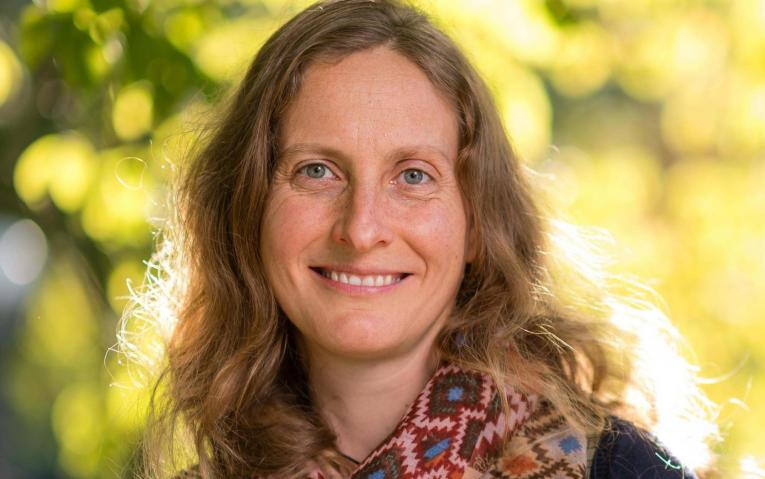
Ildiko Kovacs
Doctor of Philosophy in Curriculum Studies (PhD)
Research Topic
Participatory Planning Pedagogy: How Children's Engagement in Community Planning Supports Environmental and Sustainability Education
Dissertations completed in 2010 or later are listed below. Please note that there is a 6-12 month delay to add the latest dissertations.
Model-based Teaching (MBT) is an approach to teaching science that promotes the generation, evaluation, and modification of students’ mental models (GEM cycle). This study is a sequential mixed-methods study to explore in-service science teachers (ISTs)’ assessment literacy about teaching with models. A questionnaire was administered to 416 ISTs from Chile and Canada to investigate their knowledge of models in science education and how often they assessed their students’ reasoning with models. Then, a focused investigation on the development of five Chilean ISTs’ assessment literacy in MBT was undertaken. This investigation involved classroom observations and interviews before and after participating in an online professional development course on MBT. Quantitative data from the questionnaires were analyzed using regression analysis and factor analysis. A cross-case analysis was conducted with the five teachers to compare their assessment literacy. Results of the questionnaire showed that ISTs’ knowledge of models and modeling was positively and significantly related to their assessment literacy. Regarding the five ISTs’ pedagogy, it was found that most ISTs had beginner levels of proficiency in assessment literacy in MBT. After attending the online course, they continued using models to convey information. One experienced teacher; however, promoted a full GEM cycle which indicated that her enactments might have been influenced by her pedagogical content knowledge and years of teaching experience. These results showed that when ISTs are more literate in MBT, it influences their pedagogy regarding how they promote student generation and evaluation of their own models. Specifically, evidence was found that ISTs use assessment to i) judge students’ reasoning with models; ii) communicate feedback to clarify students’ conceptual doubts; iii) give opportunities to express their models and iv) promote the revision of generated models, for example, through the evaluation of models’ predictive power and revising them to fit new evidence. This study is significant in science education because it offers a new validated instrument to characterize ISTs’ assessment literacy. Furthermore, the characterization of ISTs’ assessment literacy offers an opportunity to identify which aspects of ISTs’ MBT could benefit from further enrichment through science teacher education.
View record
Theses completed in 2010 or later are listed below. Please note that there is a 6-12 month delay to add the latest theses.
Despite the growing use of the hybrid course delivery format in science education, there is a scarcity of research to support its effectiveness in enhancing student learning at the secondary school level. My research explores how a hybrid mode of course instruction compares with the traditional offline face-to-face mode of instruction in terms of student achievement and satisfaction. In order to assess the differences between the two course delivery formats, student satisfaction and achievement levels were measured in two Chemistry 12 classes. Findings demonstrated that students in the traditional offline face-to-face class were more satisfied than students in the hybrid class with respect to perceptions of course content and communication levels with the instructor and peers. With respect to students’ satisfaction with given grades and access to course materials, both the traditional offline class and the hybrid class yielded similar findings concerning course satisfaction. Results overall also showed that students in the hybrid class did not perform any better or worse than students in the traditional offline face-to-face class. Rather, student achievement and satisfaction levels in the hybrid format seem to depend on multiple factors not reducible to choice of format.
View record
The purpose of this study is to investigate how a technology-enhanced lesson based on the principles of model-based teaching and learning can contribute to student understanding of two challenging topics in chemistry: Le Chatelier’s Principle and Chemical Equilibrium. A computer simulation program was utilized that contained multiple digital representations,such as: a chemical formula view, a slider view, a graph view, a description view, a prediction view, a molecular view and a dynamic analogy view. The study also addressed the sequencing of instruction, changing when computer simulation was introduced in two chemistry 12 classes (n=46). One class of 22 students received instruction in a traditional form (lecture, labs) and then interacted with the simulation and the other class of 24 students interacted with simulations first and then received a traditional form of instruction. Both the classes participated in a pre-test, mid-test, post-test, surveys and interviews designed to assess students’ conceptual understanding of chemical equilibrium. Statistical analysis of thetests revealed that a computer simulation such as Technology-Enhanced Model-Based Science (TEMBS) promoted understanding by supporting the generation of more scientifically accurate models of chemical equilibrium. Secondly, there was a significant improvement in test results of students who received instruction in a traditional form first and then interacted with simulations compared with students who interacted with simulations firstand then received traditional instruction. According to the surveys, students in both classes listed teacher discussions in class as one of the three most important contributions to their learning. An implication of this study for science educators and educational technologists is that computer simulations such as TEMBS simulation which utilize multiple representationsincluding a dynamic analogy can assist students in their understanding of abstract concepts such as Le Chatelier’s principle and can be more effective if introduced after a full discussion of the concept and notes.
View record
If this is your researcher profile you can log in to the Faculty & Staff portal to update your details and provide recruitment preferences.